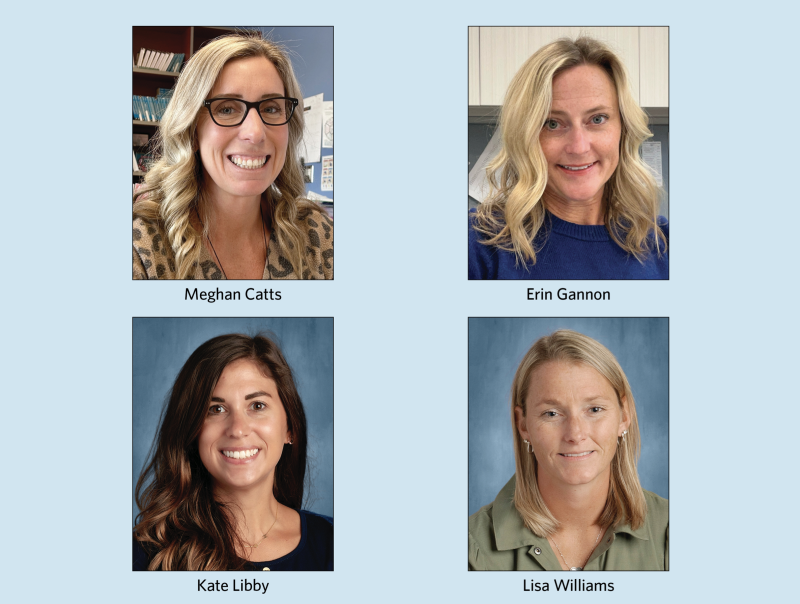Four Cape district teachers who recently earned national board certification in their fields say the experience has not only enhanced their instructional best practices, it also led to an in-depth reflection on their teaching.
Educators Meghan Catts, Erin Gannon, Kate Libby and Lisa Williams began work toward the certification as Lewes Elementary teachers. In 2022, Gannon was named an assistant principal at Sussex Consortium, and Catts was just promoted to assistant principal of Frederick D. Thomas Middle, set to open this fall.
Certification requires the completion of four components that measure an educator’s content knowledge, differentiation in instruction methods, teaching practice and the learning environment, and effective and reflective practices.
Educators must successfully pass a test and complete portfolios demonstrating their knowledge, which includes submitting a video recording of them teaching one continuous 15-minute lesson. Earning national board certification earns educators a 12% state raise.
A former district literacy specialist, Gannon focused on early and middle childhood literacy for her certification.
“It can be a blessing and a curse, because it’s self-paced,” she said, noting educators have three years to complete the work. “But it’s just good teaching practices and what should be done in the classroom anyway.”
The greatest thing about the process is that it leads to an in-depth reflection on one’s own teaching, Gannon said.
“It makes you think about every decision you are making for the group of learners facing you at that time,” she said. “It makes you speak solidly about each kid, their challenges, interests and how you use that information in your overall lesson design. It gives you a different lens that makes you think about the lesson and reflect what to do differently.”
Catts is the Cape Accelerated Program teacher at Lewes Elementary, where she was previously a third-grade teacher. She is set to take on her new role as Frederick D. Thomas Middle assistant principal July 1.
To meet her personal and professional goals, Catts said she chose to focus on exceptional needs for her certification. She said completing the process made her more knowledgeable and confident as far as what gifted practices should look like, which in turn allows her to support other teachers.
Self-reflection is the big piece of the process, she said, because to be a better practitioner, she must analyze what she’s doing and how to improve it.
“You have to really know your students,” she said. “There is no one-size-fits-all lesson. You need to understand the learner.”
She’s now working on her doctorate.
“I’m a perpetual learner so I like doing extra. I don’t know how not to,” she said with a smile, noting it’s beneficial for her three children to see that her hard work pays off.
Williams, a 15-year educator, teaches second grade at Lewes Elementary. She chose the early childhood generalist track, and recommends that her colleagues who want to elevate their teaching to a higher level should also complete the certification.
“It makes you think about what you can do better,” she said.
Libby is a math specialist, so she collaborated with other teachers who have classrooms to finish her components in the generalist track.
“It was an opportunity to learn more, and it opens me up to more opportunities professionally,” she said. “You have to be open to self-reflection; it’s the biggest thing.”
Williams agreed, noting that she was able to Zoom with other teachers around the country to talk and think about ways to improve.
“I don’t think teachers should ever stop learning,” Catts said. “Kids, schools and life change, so we need to develop to meet their needs and always be willing to continue to learn.”

















































